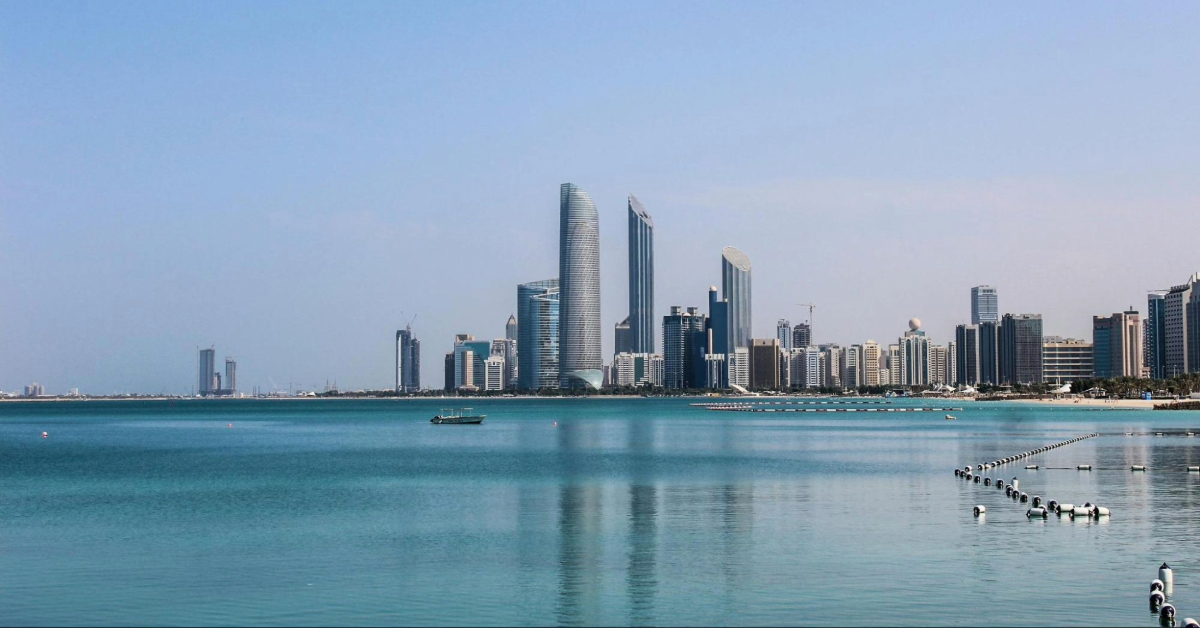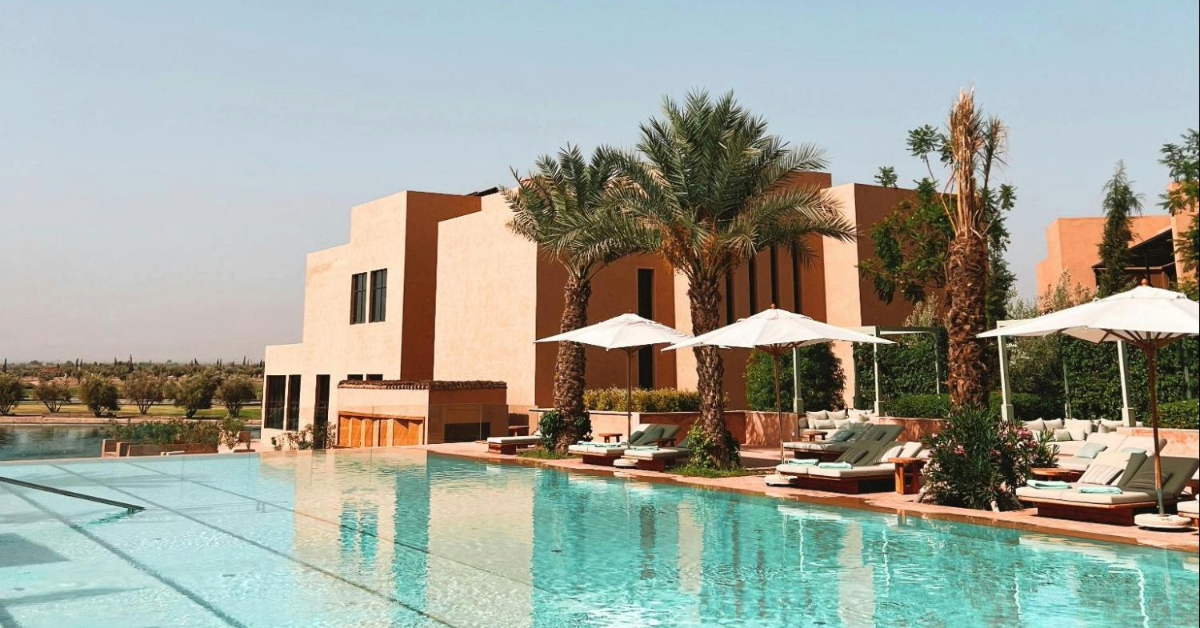The tourism dirham fee in Abu Dhabi is a tax applied to guests staying in hotels, serviced apartments, and holiday homes across the emirate. The fee helps fund cultural projects, hospitality infrastructure, and tourism services, ensuring Abu Dhabi remains one of the world’s top destinations for leisure and business travellers.
So, if you are travelling to Abu Dhabi or have frequent visits, it’s important to know all about the Abu Dhabi Tourism fee; keep reading this guide to find all about it.
- Abu Dhabi Tourism Fee Overview
- Recent Changes & Updated Rates
- How the Fee Works for Hotels and Holiday Homes
- Comparing with Other Emirates
- Refunds, Exemptions & Special Circumstances
- Strategic Impacts on Tourism & Visitors
- Key Takeaways
- FAQs

Abu Dhabi Tourism Fee Overview
The Abu Dhabi tourism fee is a government-imposed charge applied to hospitality and tourism services within the emirate. It is designed to support the development of Abu Dhabi’s tourism sector while maintaining high standards across hotels and related businesses.
Although some travellers refer to it as the tourism dirham fee in Abu Dhabi, the system differs from Dubai’s flat nightly rate. Instead, Abu Dhabi applies a small percentage of your accommodation cost, making it more straightforward and more transparent for visitors.
Whether you’re booking a five-star stay on Saadiyat Island or a city apartment near Corniche, understanding these charges helps you budget with confidence.
Recent Changes and Updated Rates
In September 2023, the emirate reduced its tourism fee from 6% to 4%, while the AED 15 per room per night municipality charge was abolished for hotels and hotel restaurants.
These reforms are part of a broader effort by the Department of Culture and Tourism (DCT Abu Dhabi) to enhance visitor affordability and long-term competitiveness. Lowering the tourism fee and removing fixed nightly surcharges encourages both leisure and business travellers to extend their stays.
However, other hotel charges still apply, including:
- Municipality fee: 4% of the bill
- Service charge: 10%
- Property service charge: 10%
- VAT: 5%
For most visitors, this means the final cost of accommodation can be around 18–20% higher than the listed price.
Why the Fee Was Reduced
The fee revision forms part of Abu Dhabi’s post-pandemic recovery plan to stimulate domestic and international tourism. By reducing the rate to 4 % and removing fixed nightly surcharges, the government encourages longer stays, repeat visits, and stronger competition with Dubai’s hotel market.
How the Fee Works for Hotels and Holiday Homes
Understanding how the Abu Dhabi tourism fee is applied helps you plan your trip more accurately. The charges vary slightly between hotels, serviced apartments, and licensed holiday homes, but all contribute to supporting tourism and hospitality development in the emirate.
Most hotels automatically apply these taxes at checkout, and the total appears on your final invoice. Guests booking through global platforms should double-check that “taxes and fees” are listed, as some international sites show pre-tax prices only.
How to Estimate Your Final Hotel Bill
To estimate your stay cost, multiply your base room rate by 1.2 (approximately 20%). This accounts for the tourism fee, VAT, and service charges. For example, a room costing AED 800 will total approximately AED 960 after taxes are applied. Always verify with your hotel if rates are tax-inclusive before confirming payment.
Hotel Accommodation
When booking a hotel in Abu Dhabi, your base rate often excludes local taxes. These are added at check-in or checkout and include:
- 4% tourism fee
- 4% municipality fee
- 10% service charge
- 10% property service charge
- 5% VAT
For example, if you book an AED 1,000 room at a five-star hotel on Saadiyat Island, expect roughly AED 180–200 added in taxes and service charges.

Holiday Homes & Other Accommodation
The new Abu Dhabi tourism fee also applies to short-let holiday homes, villas, and serviced apartments. Operators must register their properties with the Department of Culture and Tourism, following the same 4% fee structure used by hotels.
Tip: Always check your invoice to confirm whether the 4% tourism fee and 5% VAT are included in the total booking price.
Comparing with Other Emirates
If you’re visiting more than one emirate, it’s helpful to know how the Abu Dhabi tourism fee differs from those of others. Unlike Dubai’s flat nightly tourism dirham fee, Abu Dhabi applies a percentage-based rate, giving guests more transparent pricing across all hotel categories.

Overall, Abu Dhabi’s percentage-based system tends to favour longer stays, while Dubai’s tourism dirham fee can add up for multi-night visits.
Here’s how the Abu Dhabi tourism fee compares to other emirates’ hotel charges, including Dubai’s tourism dirham fee and Ras Al Khaimah’s fixed nightly rates.
| Emirate | Tourism Fee | Municipality/Dirham Fee | Other Charges |
| Abu Dhabi | 4% of the hotel bill | 4% of the invoice | VAT 5%, service 10%, AED 15/night abolished |
| Dubai | AED 7–20 per night (Tourism Dirham Fee) | 5–10% | VAT 5%, service 10% |
| Ras Al Khaimah | AED 15 per night | Variable | VAT 5%, service 10% |
For travellers choosing between Emirates, Abu Dhabi’s percentage-based fee system is often more predictable than Dubai’s per-night tourism dirham model.
If you’re still undecided about where to stay, compare communities in Abu Dhabi and Dubai to determine which one suits your lifestyle and travel budget.
Refunds, Exemptions and Special Circumstances
While most visitors are required to pay the Abu Dhabi tourism fee, there are a few exceptions and essential details to be aware of. The following points outline the procedures for refunds, temporary waivers, and new travel initiatives.
Refunds
There’s currently no system for refunds of the tourism fee, but international travellers may still be eligible for VAT refunds on certain purchases when departing the UAE.
Digital Travel Pass
Abu Dhabi recently launched a Digital Travel Pass in partnership with Etihad Airways, which bundles discounts, activity deals, and transparent fee information for arriving passengers in Abu Dhabi International Airport.
This initiative complements the emirate’s digital-first vision by linking accommodation data, local transportation, and attraction access in one app. It’s also part of Abu Dhabi’s 2025 Smart Tourism Strategy, which aims to reduce paper-based processes and enhance visitor satisfaction.

Strategic Impacts on Tourism and Visitors
Lowering the Abu Dhabi tourism fee aims to make the emirate more competitive within the Gulf’s tourism market. By simplifying taxes and eliminating the nightly municipality charge, the government seeks to attract more long-stay visitors and increase local hotel occupancy.
These reforms align with Abu Dhabi’s broader diversification strategy, encouraging growth in hospitality, events, and leisure sectors. The emirate aims to surpass 24 million annual visitors, with international campaigns highlighting Yas Island, Saadiyat Island, and cultural icons such as the Louvre Abu Dhabi.
From luxury resorts on Saadiyat Island to eco-retreats in Al Ain, visitors now enjoy a clearer, more consistent pricing system across the emirate.
For residents planning a staycation in Abu Dhabi, lower tourism fees make weekend escapes on Al Maryah Island or Yas Bay more affordable than ever. These areas blend waterfront hotels, shopping, and dining, ideal for short leisure breaks.
Key Takeaways
The Abu Dhabi tourism fee has been reduced from 6% to 4%, making travel more affordable for residents and visitors alike. The former AED 15 per-night tourism dirham fee in Abu Dhabi, once applied, has been abolished, streamlining hotel and restaurant costs across the emirate.
When combined with other charges, a 4% municipality fee, a 10% service charge, and a 5% VAT, your total hotel bill may be 20% higher than the base room rate. These updates enhance Abu Dhabi’s reputation for transparent pricing, supporting the government’s goal of sustainable tourism growth and maintaining world-class hospitality standards.
Overall, the Abu Dhabi tourism fee structure for 2025 reflects a visitor-friendly, globally competitive model that balances affordability with premium experiences, reinforcing Abu Dhabi’s standing as the UAE’s most welcoming destination.
FAQs
The fee is 4% of the accommodation bill, applicable to hotels, resorts, and registered holiday homes.
No, it was abolished in 2023 to simplify hotel pricing.
Hotels usually add a 10% service charge, 10% property service charge, 4% municipality fee, and 5% VAT.
Yes, holiday homes are subject to the same 4% tourism fee under DCT regulations.
Tourism fees aren’t refundable, but VAT refunds may apply to eligible purchases at departure.
You can explore short-term rentals, hotels, and serviced apartments directly on Property Finder to compare rates that already include local taxes and fees.
Some do, but many display pre-tax prices. Confirm “taxes included” before booking to avoid extra charges at checkout.
No, the 4 % rate applies equally to all categories, from budget stays to five-star resorts.